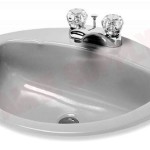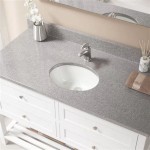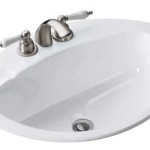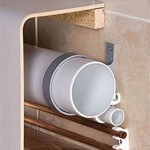Best Drain Cleaner for Bathroom Sink: A Reddit-Informed Guide
Bathroom sinks, subject to a constant barrage of hair, soap scum, toothpaste remnants, and other debris, are particularly prone to clogs. Finding the optimal drain cleaner requires understanding the nature of the blockage and the characteristics of available products. Online forums, especially Reddit, offer a diverse range of user experiences and recommendations, providing valuable insights into the effectiveness of different solutions. This article synthesizes information gleaned from Reddit threads and other credible sources to present a comprehensive guide to selecting the best drain cleaner for bathroom sinks.
The selection of a suitable drain cleaner hinges on several factors, including the type of clog, the plumbing material, and the user's preference for chemical or natural solutions. Neglecting these factors can lead to ineffective treatments, damage to the plumbing system, or even health hazards. Therefore, a thorough understanding of the options available is crucial.
Understanding Common Bathroom Sink Clogs
The first step in choosing the right drain cleaner is identifying the primary culprits behind the blockage. Bathroom sink clogs are typically composed of organic materials that accumulate over time. Hair, often intertwined with soap scum and toothpaste, forms a dense mat that restricts water flow. Grease and oils, although less common than in kitchen sinks, can also contribute to the problem, particularly if oily skincare products are frequently washed down the drain. Mineral buildup from hard water can further exacerbate the issue, narrowing the pipe's diameter and providing a foundation for other debris to cling to.
Different types of clogs respond differently to various cleaning methods. A clog primarily composed of hair may require a cleaner formulated with enzymes to break down protein, while a clog containing significant soap scum might benefit from a cleaner with strong dissolving properties. Attempting to force a harsh chemical drain cleaner through a heavily compacted grease clog could result in a partial dissolving and hardening downstream, making the problem significantly worse.
Chemical Drain Cleaners: Pros and Cons
Chemical drain cleaners are often the first choice for many due to their perceived speed and effectiveness. These products typically contain strong chemicals like sodium hydroxide (lye) or sulfuric acid, designed to rapidly dissolve organic matter. While they can be effective at clearing some clogs, they also present several drawbacks.
One major concern is the potential for damage to plumbing. Harsh chemicals can corrode metal pipes, especially older ones. They can also soften PVC pipes, leading to leaks or even pipe failures over time. Furthermore, chemical drain cleaners pose a significant risk to human health. Exposure to these chemicals can cause severe burns, eye damage, and respiratory irritation. It's crucial to wear protective gear and follow the manufacturer's instructions carefully when using these products.
Another disadvantage of chemical drain cleaners is their environmental impact. The chemicals can contaminate wastewater treatment systems and harm aquatic life. While some manufacturers claim that their products are biodegradable, the breakdown process can still release harmful byproducts into the environment.
Despite these drawbacks, chemical drain cleaners can be effective in certain situations. They are generally best suited for clearing minor clogs caused by hair and soap scum. However, they should be used with caution and only as a last resort, after trying safer and more environmentally friendly alternatives.
Natural and Enzymatic Drain Cleaners: A Safer Alternative
For those seeking a less aggressive approach, natural and enzymatic drain cleaners offer a viable solution. These products utilize enzymes or bacteria to break down organic waste without the harsh chemicals found in conventional drain cleaners. Enzymatic cleaners work by releasing enzymes that digest proteins, fats, and other organic materials, effectively clearing the clog over time. This process can take longer than chemical drain cleaners, but it is generally safer for plumbing and the environment.
Natural drain cleaners often contain ingredients like baking soda, vinegar, and boiling water. These ingredients work together to dislodge and dissolve clogs without harming pipes. Baking soda acts as a mild abrasive, while vinegar provides an acidic reaction that helps to break down grease and soap scum. Boiling water can further help to loosen and flush away debris.
A popular homemade drain cleaner method involves pouring one cup of baking soda down the drain, followed by one cup of vinegar. After allowing the mixture to fizz for about 30 minutes, flush the drain with boiling water. This process can be repeated several times if necessary. While this method may not be as potent as chemical cleaners, it is a safe and effective option for minor clogs.
Enzymatic drain cleaners are particularly effective for breaking down hair and other protein-based clogs. They are also safe for use in septic systems, as the enzymes help to promote the breakdown of waste. However, enzymatic cleaners may not be as effective against mineral buildup or grease clogs.
Physical Drain Cleaning Methods: Plungers and Snakes
Before resorting to any type of drain cleaner, it's often best to try physical methods of clog removal. A plunger is a simple but effective tool for dislodging clogs near the drain opening. By creating suction and pressure, a plunger can help to break up the blockage and allow water to flow freely.
When using a plunger, it's important to ensure that there is enough water in the sink to cover the cup of the plunger. Create a tight seal around the drain opening and push and pull the plunger vigorously for several minutes. Repeat the process until the clog is dislodged. For sinks with overflow openings, it's important to block the opening with a wet cloth to maintain suction.
A drain snake, also known as an auger, is another useful tool for physical clog removal. Drain snakes are flexible cables that can be inserted into the drain to break up or retrieve clogs that are located deeper within the pipes. There are several types of drain snakes available, ranging from simple hand-cranked models to more sophisticated power-operated versions. For bathroom sinks, a small, hand-cranked drain snake is usually sufficient.
To use a drain snake, carefully insert the cable into the drain opening and rotate the handle to advance the snake through the pipes. If you encounter resistance, continue to rotate the handle while applying gentle pressure to break up the clog. Once the clog is broken up or retrieved, slowly withdraw the snake and clean it thoroughly. It is important to wear gloves when handling a drain snake, as it may be covered in bacteria and other debris.
Physical methods are often the most effective and safest way to clear a clogged bathroom sink. They avoid the use of harsh chemicals and minimize the risk of damage to plumbing. While they may require some effort, they are often the best first line of defense against stubborn clogs.
Preventive Measures: Avoiding Future Clogs
The best way to deal with bathroom sink clogs is to prevent them from forming in the first place. Simple preventive measures can significantly reduce the frequency and severity of clogs. One of the most effective strategies is to install a drain strainer or mesh screen to catch hair and other debris before they enter the drain. These strainers are inexpensive and easy to install, and they can save a significant amount of trouble down the road.
Another important preventive measure is to avoid pouring grease or oily substances down the drain. While it may seem convenient to rinse oily skincare products down the sink, these substances can solidify within the pipes and contribute to clogs. Instead, wipe excess grease and oil with a paper towel and dispose of it in the trash. Periodically flushing the drain with hot water can also help to prevent grease buildup. Running hot water for a few minutes after using oily products can help to flush them through the pipes before they have a chance to solidify.
Regularly cleaning the sink and drain can also help to prevent clogs. Use a mild detergent to clean the sink basin and drain opening at least once a week. This will help to remove soap scum and other debris before they accumulate and cause a blockage. You can also periodically pour a cup of baking soda down the drain followed by hot water to help keep the pipes clean.
Finally, be mindful of what you are putting down the drain. Avoid flushing non-biodegradable items such as cotton balls, facial wipes, and feminine hygiene products down the sink. These items can easily clog the drain and cause significant problems. By following these simple preventive measures, you can keep your bathroom sink drain clear and prevent the need for frequent drain cleaning.
In conclusion, selecting the right drain cleaner for a bathroom sink requires careful consideration of the type of clog, the plumbing material, and the user's preferences. Reddit and other online forums provide valuable insights from other users, but it's crucial to supplement this information with a thorough understanding of the different options available. By prioritizing preventive measures and adopting a cautious approach, users can effectively maintain their bathroom sinks and avoid the frustration of persistent clogs.

Is This The Worst Cleaning Job In Your House Through Outfield

How To Clean Drains And Unclog Shower Or Sink Today

Comfort 101 When Should I Use Chemical Drain Cleaners Spirit 105 3

Smelly Shower Drain Reddit Diy Cleaner Bathtub

Green Gobbler Vs Drano Which Drain Cleaner Is Better Prudent Reviews







